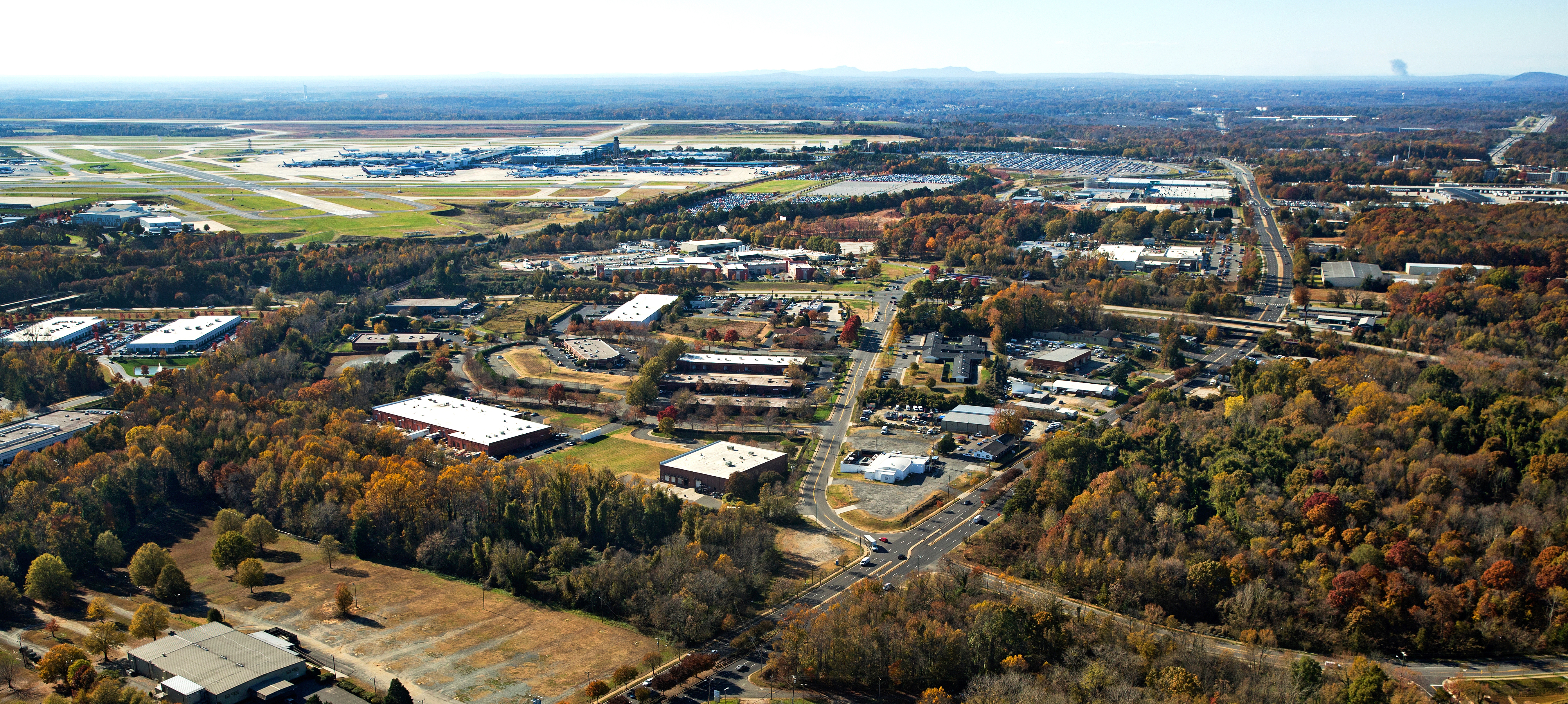
Charlotte Douglas International Airport is strategically expanding its business beyond aviation to diversify its financial portfolio and increase its non-aeronautical revenue.
When COVID-19 led to fewer flights, lower passenger numbers and decreased revenue in 2020, non-aeronautical revenue became more important than ever to airports nationwide. Afterall, the Federal Aviation Administration requires all airports to be financially self-sufficient.
Non-aeronautical revenue is generated from commercial enterprises, such as concessions, duty free, parking, advertising, car rental facilities and real estate income. The latter of which CLT saw as a tremendous opportunity for growth.
Since the 1980s, Charlotte Douglas has bought land around the Airport that is not intended for airfield expansion through federal noise programs and master planning efforts. Little, however, was done with property outside the airfield’s perimeter fence until about seven years ago.
“We are now starting to activate long-term development plans to strategically use these assets to protect the Airport’s future interests while ensuring we remain financially self-sustaining,” said CLT’s CEO/Aviation Director Haley Gentry.
Project AMP was created in spring 2017 to chart CLT’s course for commercial development surrounding the Airport. AMP stands for Airport Area Master Plan. The initiative excludes residential development (single family homes, multi-family homes and condos). CLT has multiple properties of varying sizes for lease or sale to companies interested in being near an international airport hub. All Airport land agreements must work within the regulatory confines of the FAA, city, county, and state.
Under Project AMP, the Airport sold land off Tuckaseegee Road and Wilkinson Boulevard for $7.5 million to Amazon, which selected the contractor to build a 2.4 million-square-foot Amazon Robotic Fulfillment Center. The facility employs approximately 1,500 people.
Recently, the Airport leased 49 acres known as Project Hub to Crow industrial Holdings. Over the next 49 years the lease will generate about $500,000 annually. Crow is developing a Best Buy warehouse.
“The focus of Wilkinson Boulevard long term is really changing from what it used to be,” Gentry said. “You will start to see more development occurring at the front door of the Airport that is compatible with Airport use.”
Those businesses include industrial warehousing, light manufacturing, office space and commercial retail operations.
“We get inquiries on a regular basis, probably three or four a week, seeking to buy or lease our property,” said CLT’s Director of Economic & Community Affairs Stuart Hair. “We are very intentional with offering properties every couple of months. Leasing this land provides even bigger internal rates of return for our non-aeronautical revenue streams.”
In fact, the Airport has switched the focus of its non-aeronautical revenue more toward a land lease model. CLT plans to lease roughly 100 acres of land this year.
Overall, Charlotte Douglas has about 2,000 acres in its real estate portfolio to sell or lease. “This is not something that’s going to be done this year or in five years or in 10 years,” Hair said. “We’ll always be seeking additional non-aeronautical revenue opportunities. This is a long-term part of our overall business strategy.”
The economic benefits not only foster positive outcomes for the Airport, but for the surrounding communities by creating hundreds of jobs for residents.
“We want to deliver on that valued promise of being a good neighbor for the folks who live and work around this area,” Hair said. “We can do that by providing more and better opportunities that allow them to get the leg up and obtain the professional work environment exposure to move into a higher paying job.”